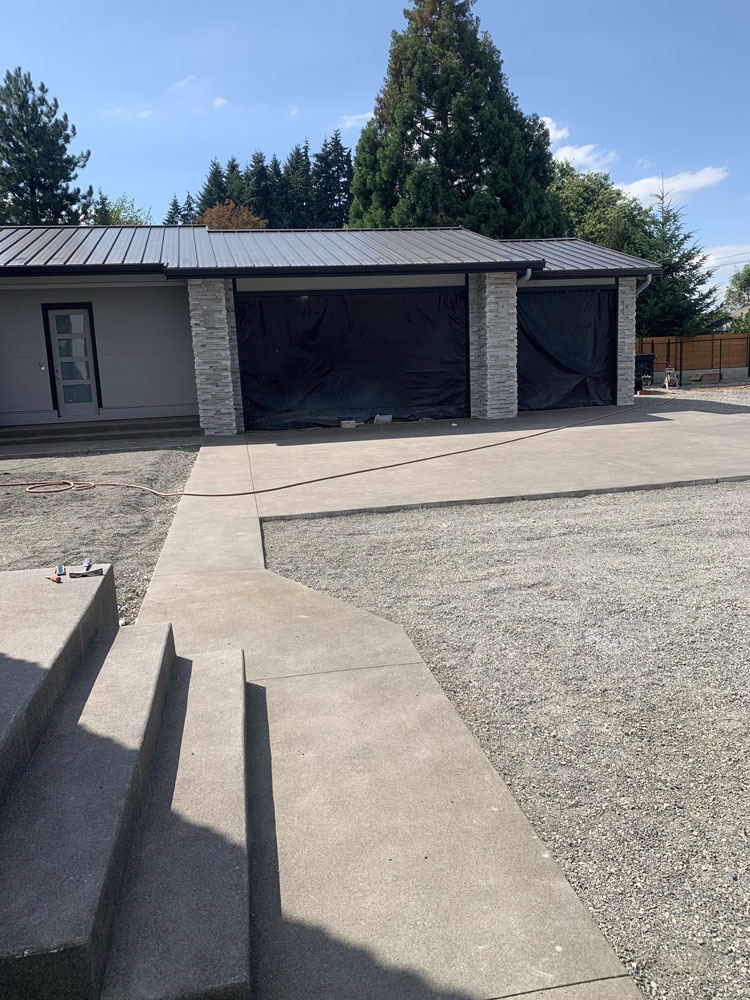Introduction
Masonry has been a cornerstone of architectural layout and building and construction for centuries. The techniques employed by experienced masonry service providers have evolved significantly from the old human beings that initially harnessed the power of stone and brick. In this short article, we'll dive deep right into the world of stonework, discovering its rich background, modern-day advancements, and understandings from seasoned professionals in the field.
What is Masonry?
Masonry refers to the structure procedure that utilizes products such as rock, block, or concrete blocks. It's a method that not just stands the examination of time but additionally uses visual appeal and architectural honesty. With origins tracing back hundreds of years, masonry has actually been essential in developing several of humankind's most famous structures.
The Development of Masonry Techniques
From Ancient Stones to Modern Structures: Insights on Stonework Strategies from Seasoned Contractors covers a variety of masonry practices. This evolution showcases how technologies have changed typical methods into contemporary approaches.

Historical Summary of Masonry
- Ancient Civilizations: The Egyptians made use of rock blocks to create monumental frameworks like pyramids. Roman Innovations: The Romans refined using concrete, allowing for more complex designs. Medieval Masonry: Gothic basilicas showcased intricate stonework that highlighted height and light.
Each duration contributed distinct techniques that notified modern practices.
Essential Tools Made use of by Masonry Contractors
Understanding the devices utilized in masonry is essential for appreciating the craft. Here are some primary tools utilized by masonry contractors:
Trowel: Used for spreading out mortar and forming bricks. Level: Ensures frameworks are even. Masonry Saw: Puncture stones and blocks with precision. Pointing Tool: For ending up joints between stones.By grasping these devices, service providers make sure quality craftsmanship in every project.
Types of Masonry Techniques
Different kinds of masonry techniques cater to numerous architectural requirements:
- Brick Masonry: Standard yet flexible, brick supplies outstanding thermal properties. Stone Masonry: Includes utilizing natural rocks; fantastic for sturdiness and aesthetics. Concrete Block Masonry: Affordable and strong; suitable for contemporary construction.
Each strategy has its benefits relying on project requirements.
The Role of a Stonework Contractor
A masonry professional plays a vital duty in both domestic and industrial jobs. They not only bring experience yet also ensure conformity with building regulations and regulations.
Responsibilities of a Masonry Contractor
Assessing Project Requirements Sourcing Quality Materials Overseeing Construction Processes Ensuring Safety and security StandardsThese duties highlight their essential function in successful building and construction projects.
The Value of Quality Materials
Using high-quality products can substantially affect the long life and look of a structure. Seasonal variations can influence material efficiency, which is why skilled professionals stress selecting appropriate materials based upon environmental conditions.
Common Materials Made use of in Masonry
- Clay Bricks Natural Stone Concrete Blocks Mortar Mixes
Each material serves its purpose while adding to total structural integrity.
Modern Advancements in Masonry
As technology advances, so do masonry methods. Modern advancements include:
3 D Printing Technology: Enhancing building processes. Eco-Friendly Materials: Sustainable options are getting traction among contractors. Advanced Mortars: Enhance adhesion and toughness under varying weather conditions.These innovations existing brand-new opportunities for architects and building contractors alike.
Challenges Dealt with by Today's Masonry Contractors
Even skilled contractors run into difficulties:
- Weather problems can postpone projects. Material scarcities might emerge unexpectedly. Adapting to new technologies calls for continuous learning.
Addressing these obstacles is essential for preserving job timelines and high quality standards.
Safety Practices in Stonework Work
Ensuring security on-site is paramount for any stonework professional:
Wearing Individual Safety Devices (PPE) Using scaffolding appropriately Proper lifting strategiesImplementing these methods aids prevent mishaps and injuries during building activities.
Case Researches of Historic Frameworks Built with Masonry
Examining historic structures provides useful insights into reliable masonry techniques:
The Great Wall of China
Constructed over centuries, this huge framework highlights old stonework techniques still appreciated today.
Colosseum in Rome
A wonder of Roman engineering, showcasing advanced concrete usage throughout its time.
By researching these instances, modern-day service providers can amass lessons suitable to current projects.
Future Fads in Masonry
As we look in advance, several patterns might form the future landscape of masonry:
Increased Use of Prefabricated Units Enhanced Sustainability Practices Digital Partnership ToolsThese patterns suggest exactly how contractors need to continue to be versatile to grow in a developing sector landscape.
Frequently Asked Inquiries (Frequently asked questions)
1. What makes an excellent stonework contractor?
A great stonework service provider possesses experience, understanding about materials, focus to detail, strong interaction abilities, and adherence to safety procedures-- all essential top qualities that guarantee successful job outcomes.
2. How long does it require to finish a masonry project?
The timeline differs commonly relying on factors such as project size, intricacy, material availability, weather conditions, and manpower performance-- ranging from weeks for small jobs to months for larger building and constructions like buildings or walls.
3. What prevail concerns faced during masonry work?
Common issues include moisture infiltration bring about mold growth or wear and tear gradually; improper mixing ratios creating weak bond toughness; weather-related delays; or unanticipated architectural complications uncovered throughout remodellings or repairs-- each calling for mindful management by proficient contractors.
4. Is it needed to employ professionals for tiny stonework jobs?
While do it yourself fanatics might take on minor repair work or setups themselves if they possess sufficient skills/knowledge regarding appropriate tools/materials included-- it's commonly suggested hiring specialists makes sure quality handiwork reduces possible errors/costly errors down road-- particularly when architectural integrity at stake!

5. Are there environment-friendly choices offered in masonry?
Yes! Numerous producers currently produce lasting products made particularly decrease ecological influence-- such as recycled web content bricks/concrete blends-- allowing customers construct properly without sacrificing style/functionality!
6. What maintenance does masonry need over time?
Routine assessments need to be performed identify noticeable cracks/joint splitting up making certain seals intact stopping water damages-- periodic cleaning will certainly likewise keep surface areas looking fresh/appealing while safeguarding underlying structure integrity!
Conclusion
In final thought, exploring the trip mason "From Ancient Stones to Modern Structures: Insights on Stonework Techniques from Seasoned Contractors" reveals not just history yet likewise advancement within this old craft-- a testament resilience flexibility showed throughout centuries! With each passing decade brings forth new challenges & & opportunities forming future landscape market, yet core concepts workmanship remain unchanged directing hands experienced masons today towards creating sensational long-lasting jobs architecture inspiring generations yet come!